2023 Congressional Fly-In
The data that our community scientists collect over the years is so valuable. But what we do with it is even more important. While this is a long-term water sampling project to see how our watersheds are changing overtime due to climate change, we still have an immense amount of short-term data from watersheds all over the world. We should use it when and where we can. We are now at the point where we can use our climate science to advocate for the health of our rivers to both sides of the aisle. Last week, we swapped our fishing and lab attire for professional outfits and began our policy efforts on Capitol Hill.
Woodwell Climate Research Center’s Congressional Fly-In team members. Photo by Eric Lee.
Woodwell Climate Research Center had their second Congressional Fly-In last week and Science on the Fly was proud to be a part of it. Four of our team members from Science on the Fly as well as 14 team members from Woodwell Climate Research Center flew into Washington D.C. to lobby on various pieces of legislature. In each meeting, our teams ensured that policy and decision-making at all levels were being informed with world-class climate research. For the Science on the Fly team, we were specifically lobbying for the support of the Headwaters Protect Act and used our community scientists’ data to help make key points on climate action, forest resilience, and watershed health.
The Headwaters Protection Act
The Headwaters Protection Act was introduced into congress by Senator Michael Bennet (D-CO) and Senator Mike Crapo (R-ID) in June 2023. It would direct the resources and funding needed to better protect our watersheds against climate-driven wildfires. This legislature is an amendment to the Healthy Forest Act of 2003 and focuses on improving the Water Source Protection Program. It would increase appropriation spendings from $10 million per year to $30 million per year to reduce wildfire risks, improve our drinking water quality and the watersheds resilience to wildfires and climate change, expand forest and river monitoring efforts, and prioritize watershed research and protection projects. It would also widen the range of water users who have been at a disadvantage towards participating in the Water Source Protection Program.
Science on the Fly team members meeting with the office of Senator Martin Heinrich (D-NM). Photo by Eric Lee.
River Health is Bipartisan
Two of our community scientists, Daniel White and Harry Clark of Fort Collins, Colorado, began sampling for our program in 2020 right after the devastating Cameron Peak Wildfire in Colorado burned areas around the Cache la Poudre River Watershed. With their valuable data, we were able to show that wildfires can severely alter the chemistry of nearby watersheds, reducing the ecosystem services that they provide.
Science on the Fly was able to utilize these data collected by our community scientists to advocate our support of the Headwaters Protection Act to four offices. The offices we met with were Senator John Hickenlooper (D-CO), Senator Martin Heinrich (D-NM), Senator Mike Crapo (R-ID), and Representative Brittany Pettersen (D-CO-07). In each meeting, we took the time to introduce our project and the work of Woodwell Climate Research Center, we highlighted our community scientists’ efforts in their specific states, and we asked what else is top of mind for each office to see if we can support their future goals. Keeping our rivers healthy is a bipartisan issue, and all sides were very receptive to and actively interested in the work that Science on the Fly and Woodwell Climate does. Some already see potential use for it in furthering efforts on specific river protections and climate actions.
Dave McGlinchey, Chief of Government Relations for Woodwell Climate and one of the team members lobbying with Science on the Fly, summed up our fly-in well. He reflected, "We learned this week that Science on the Fly opens doors in Congress and river science launches important conversations about environmental goals and collaboration on climate progress. We spoke with congressional Republicans and Democrats and they all want clean rivers, and they all respect and appreciate citizen science. Those shared values are a powerful starting point to talk about climate change impacts and solutions."
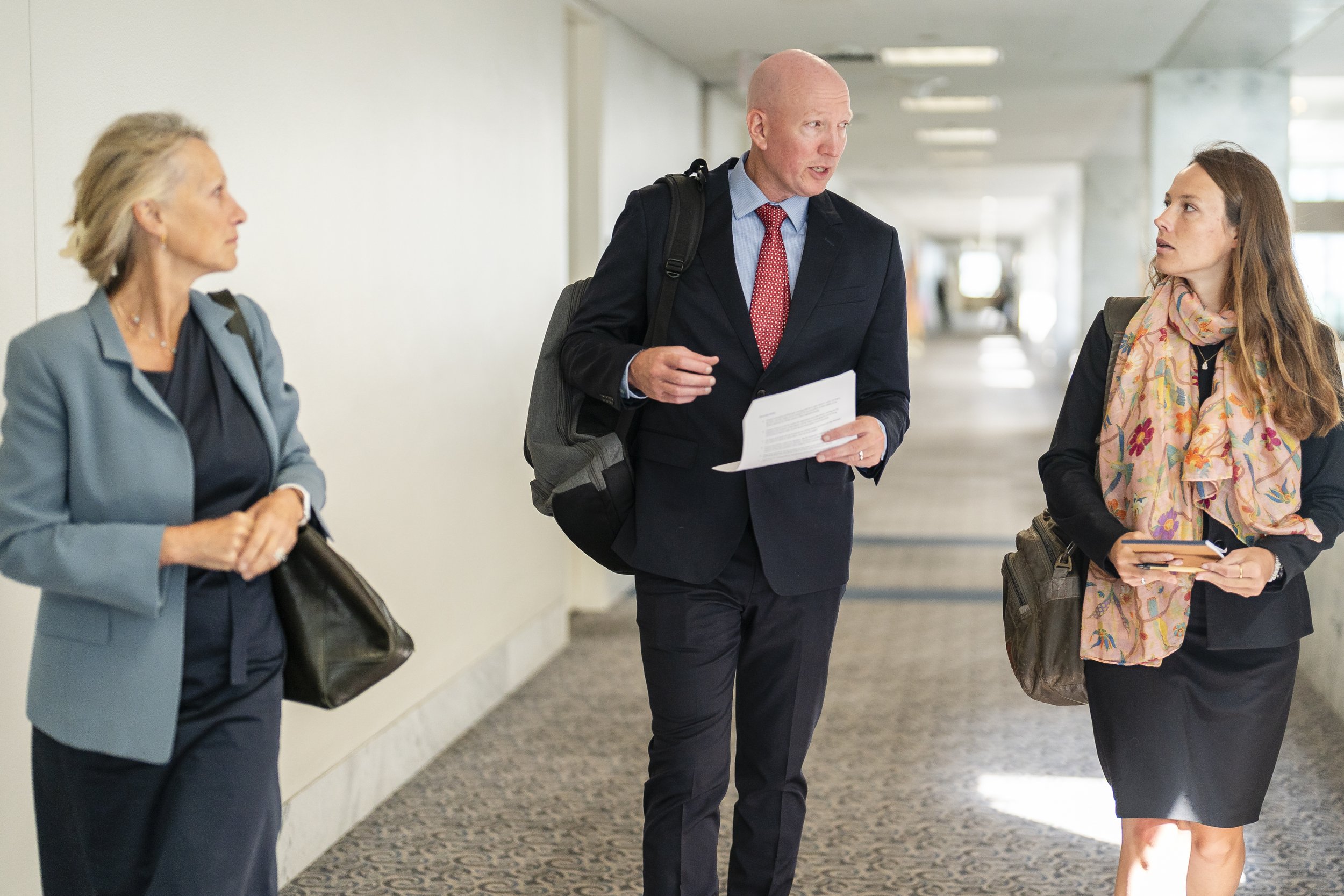
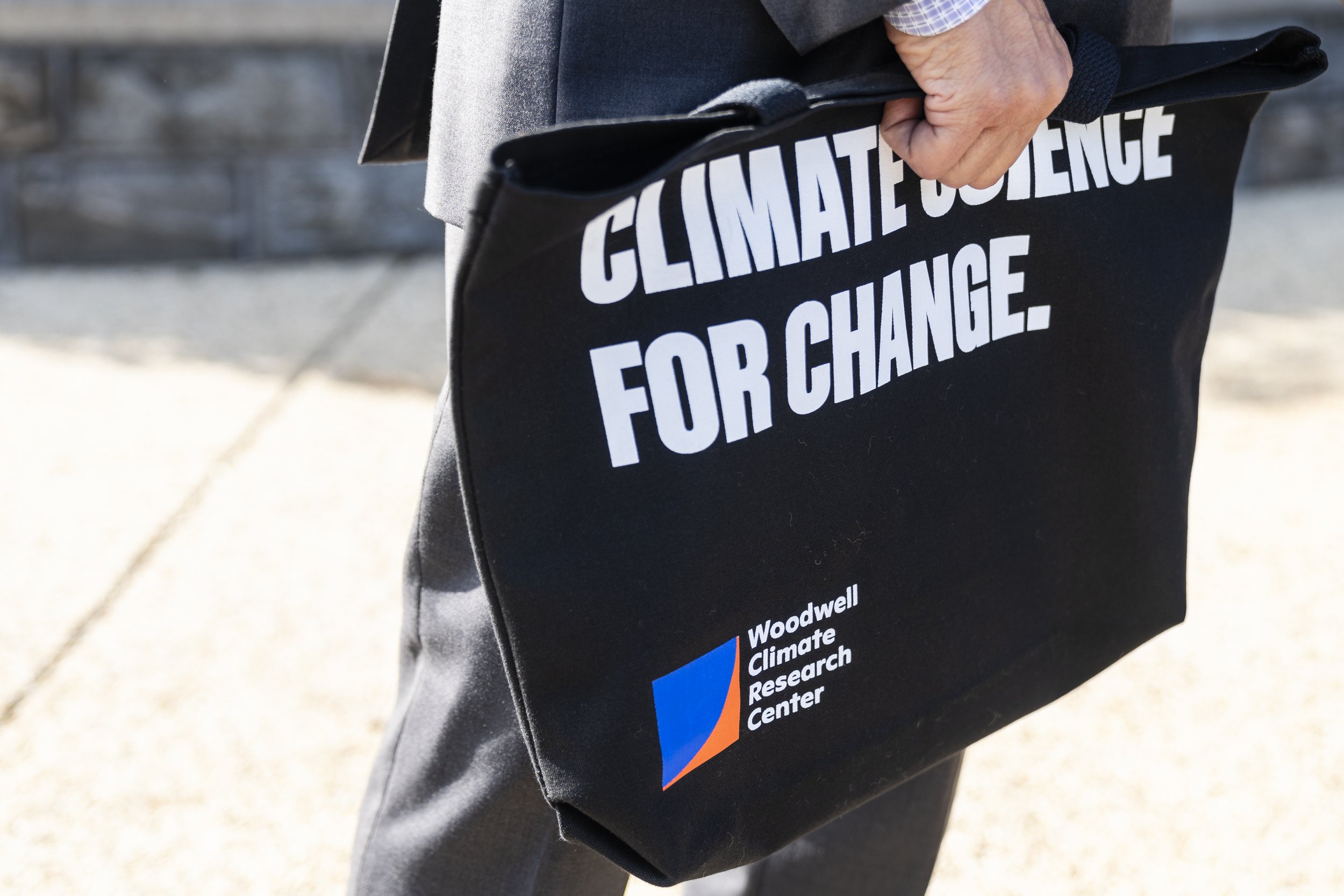
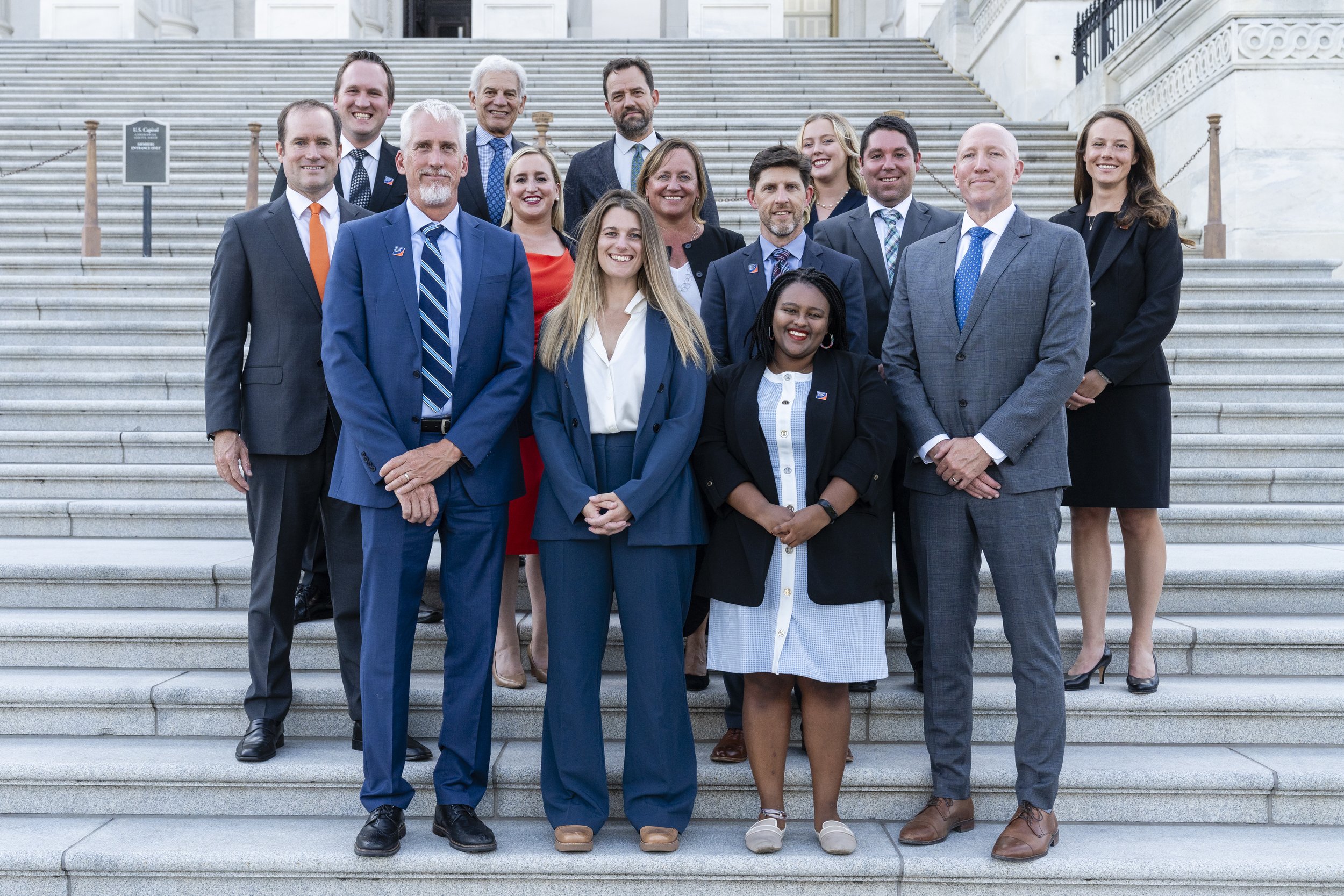
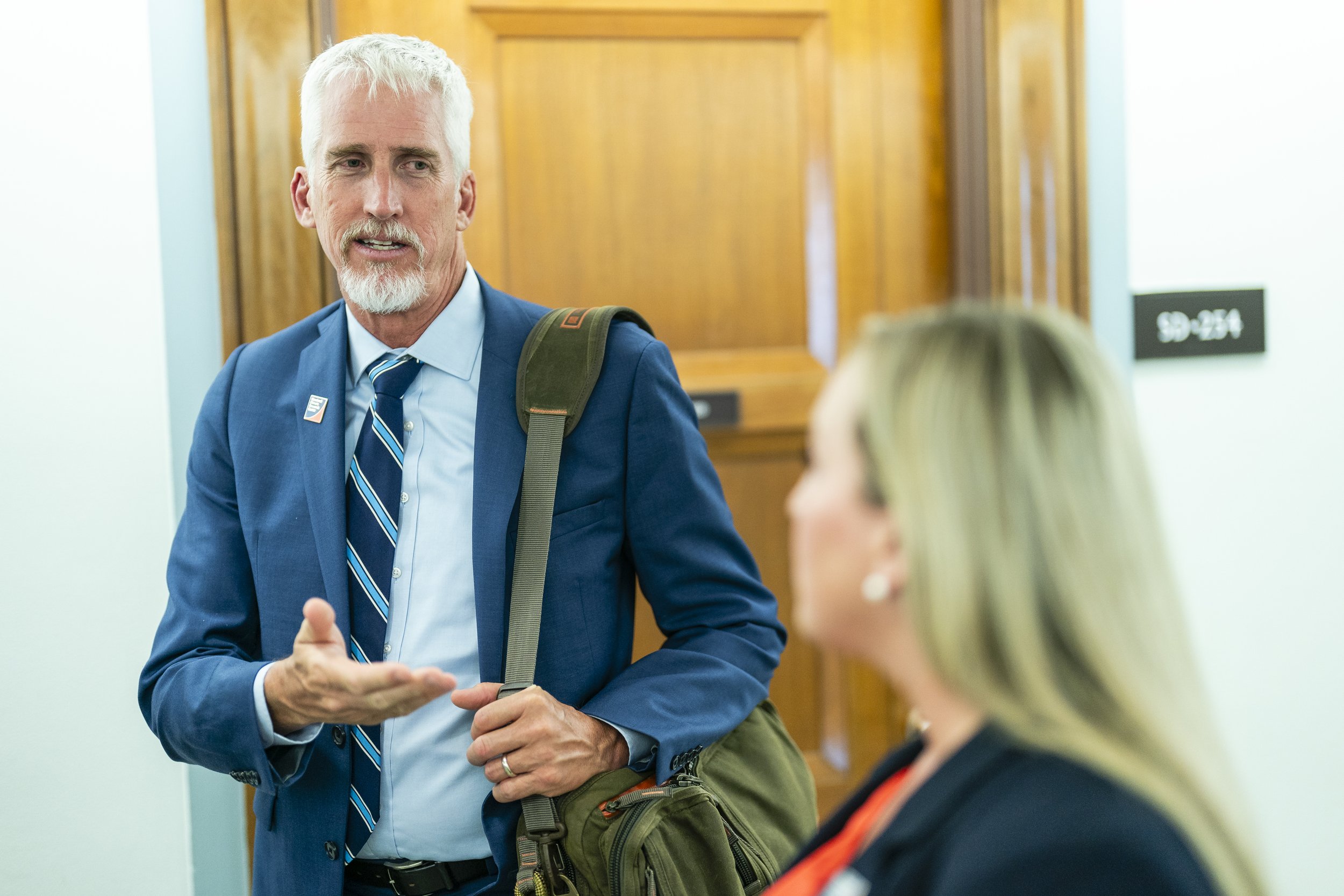
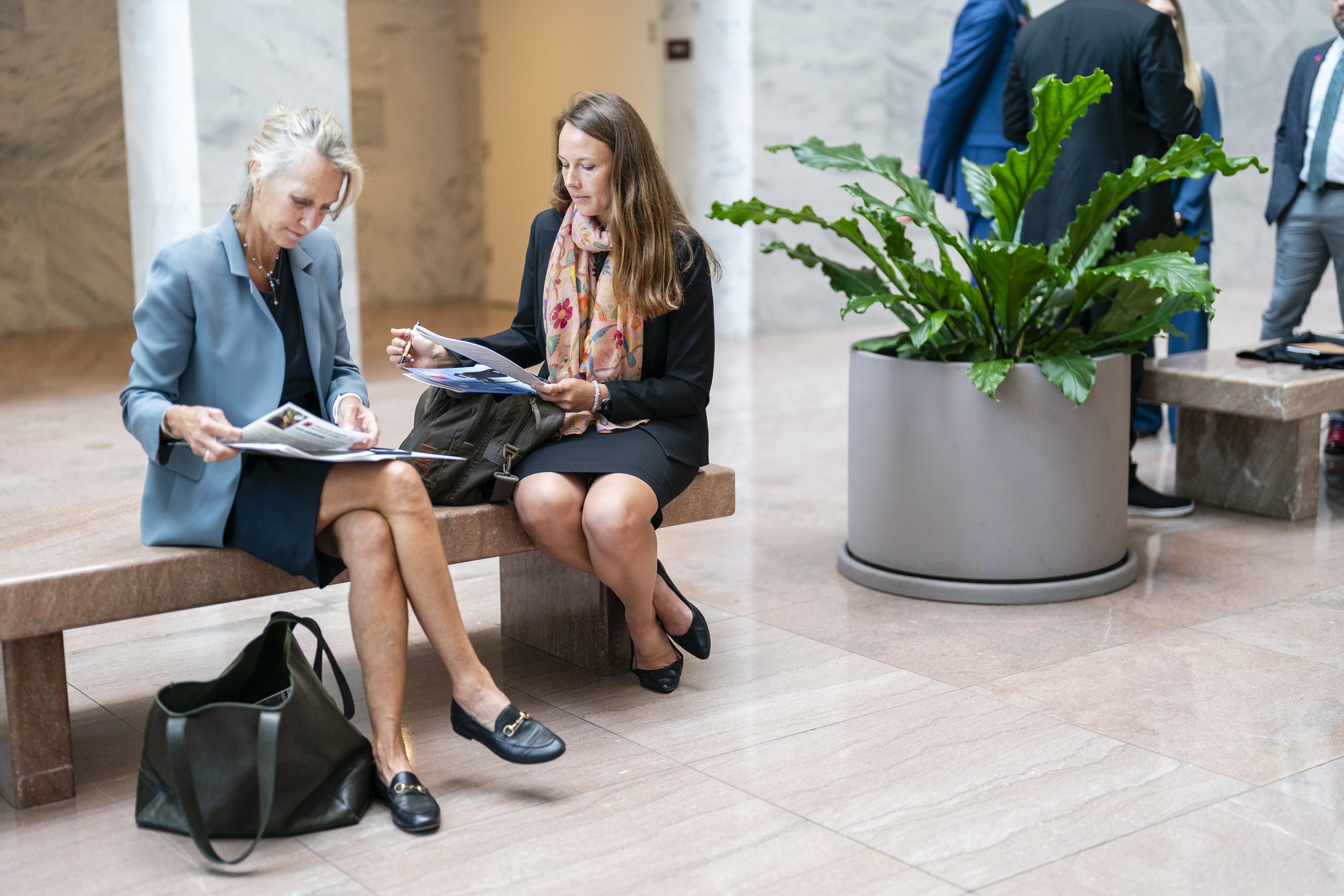
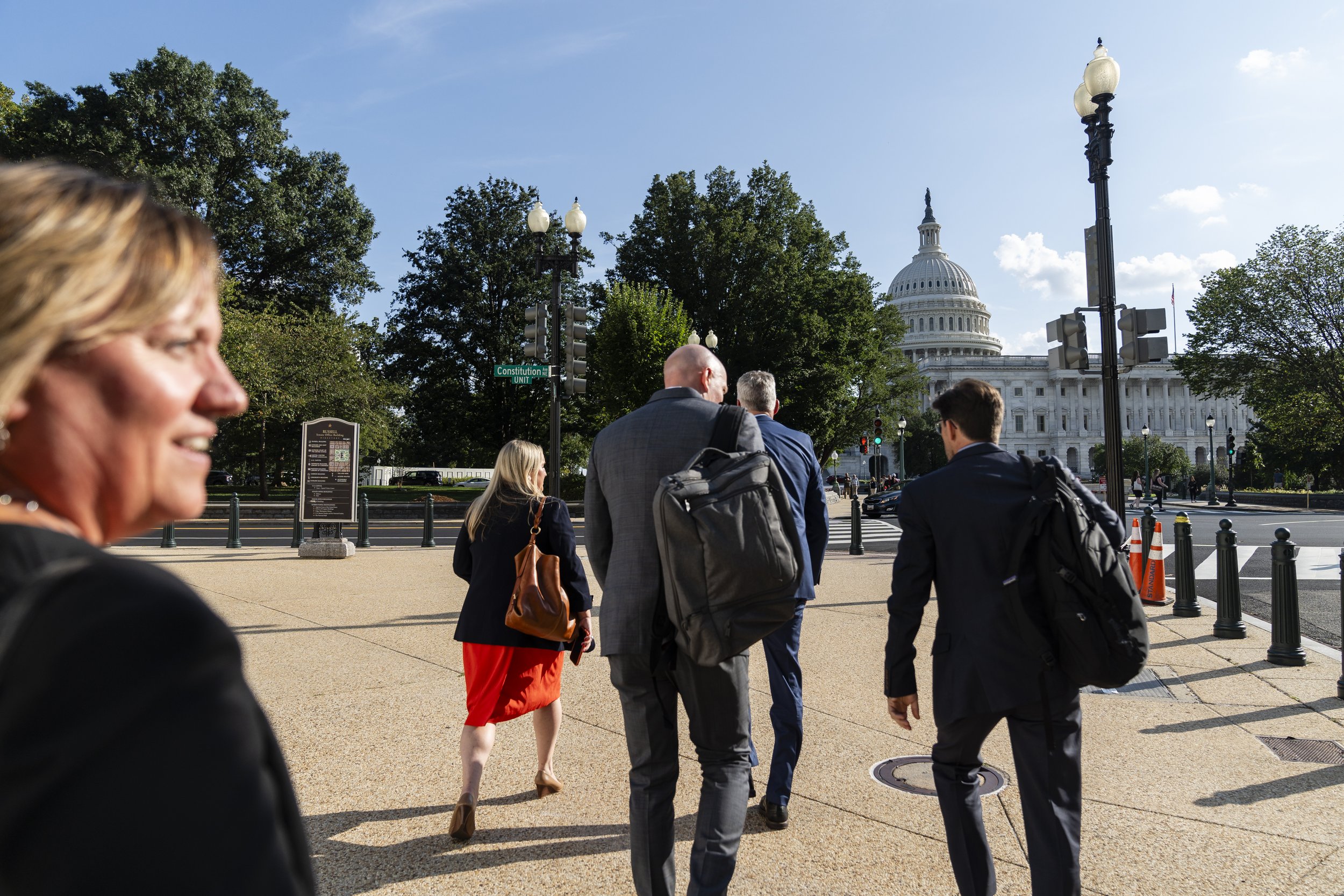
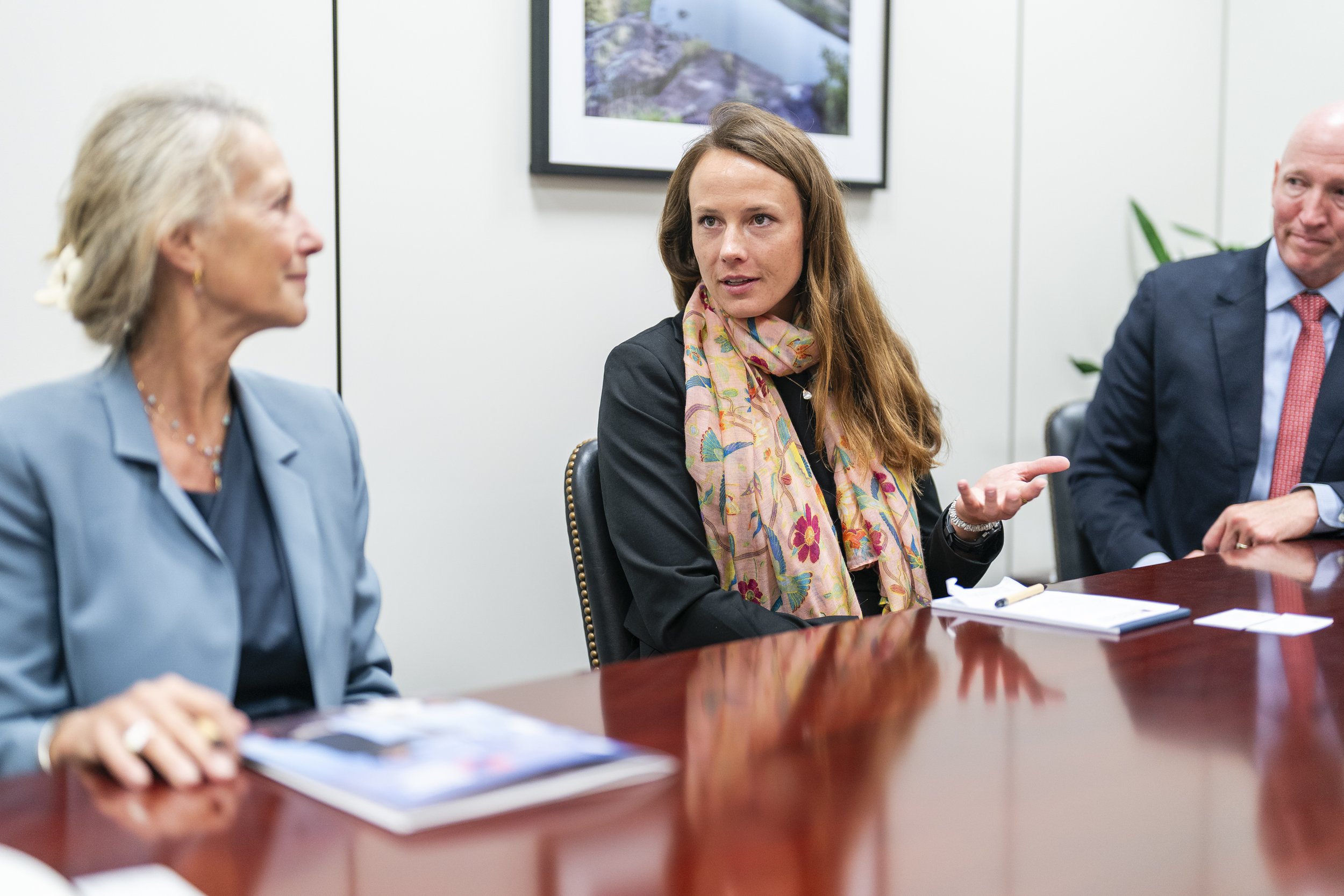
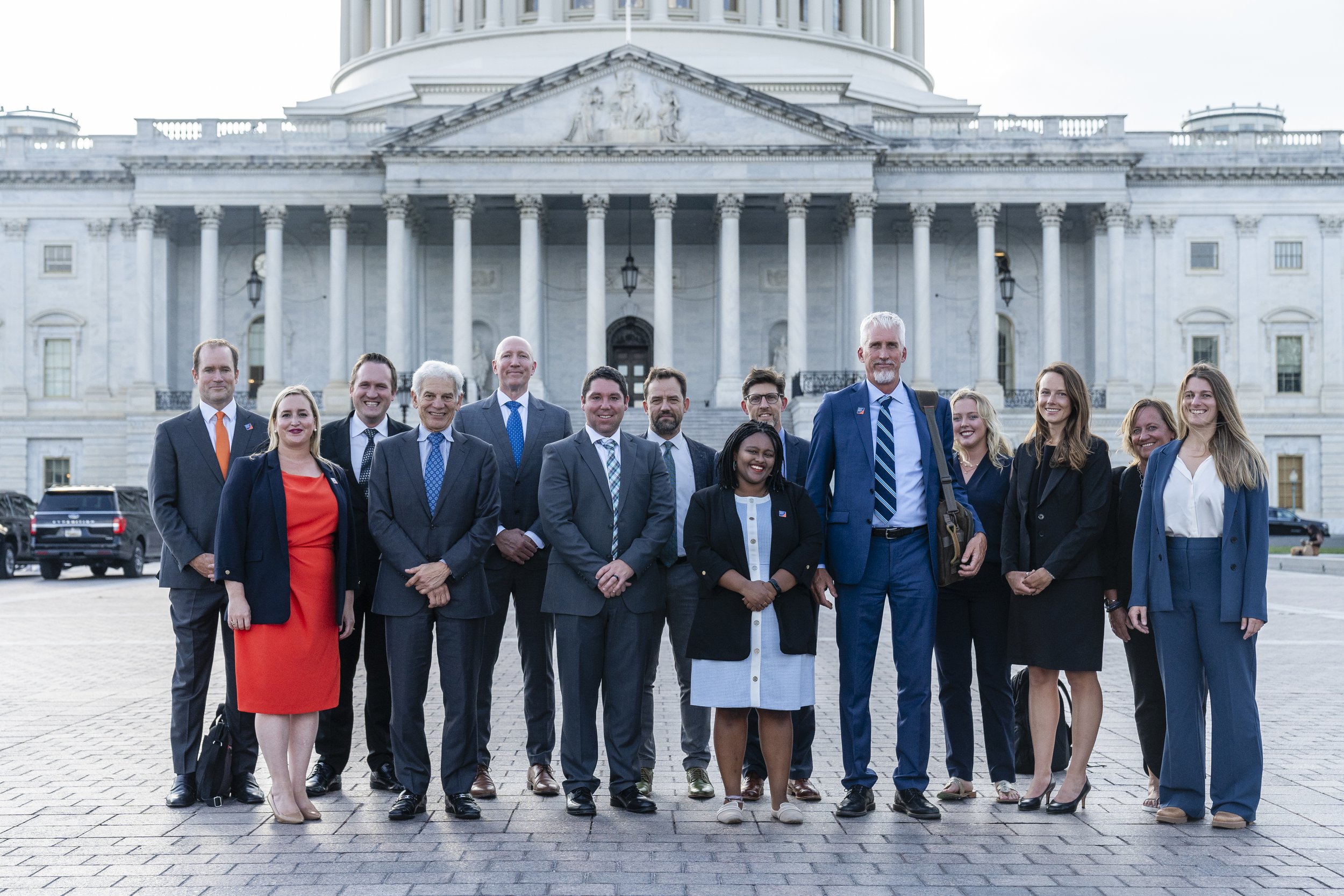
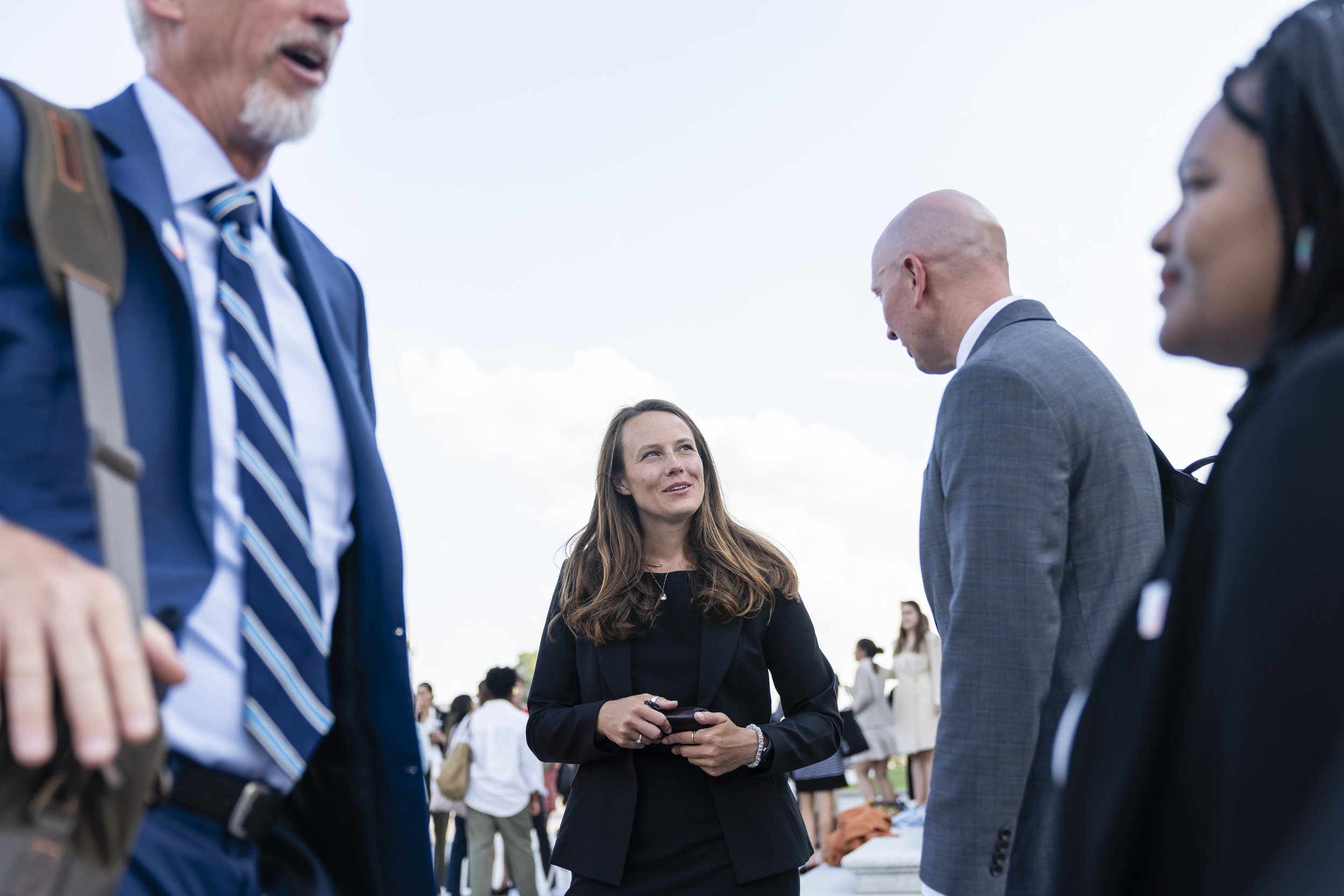
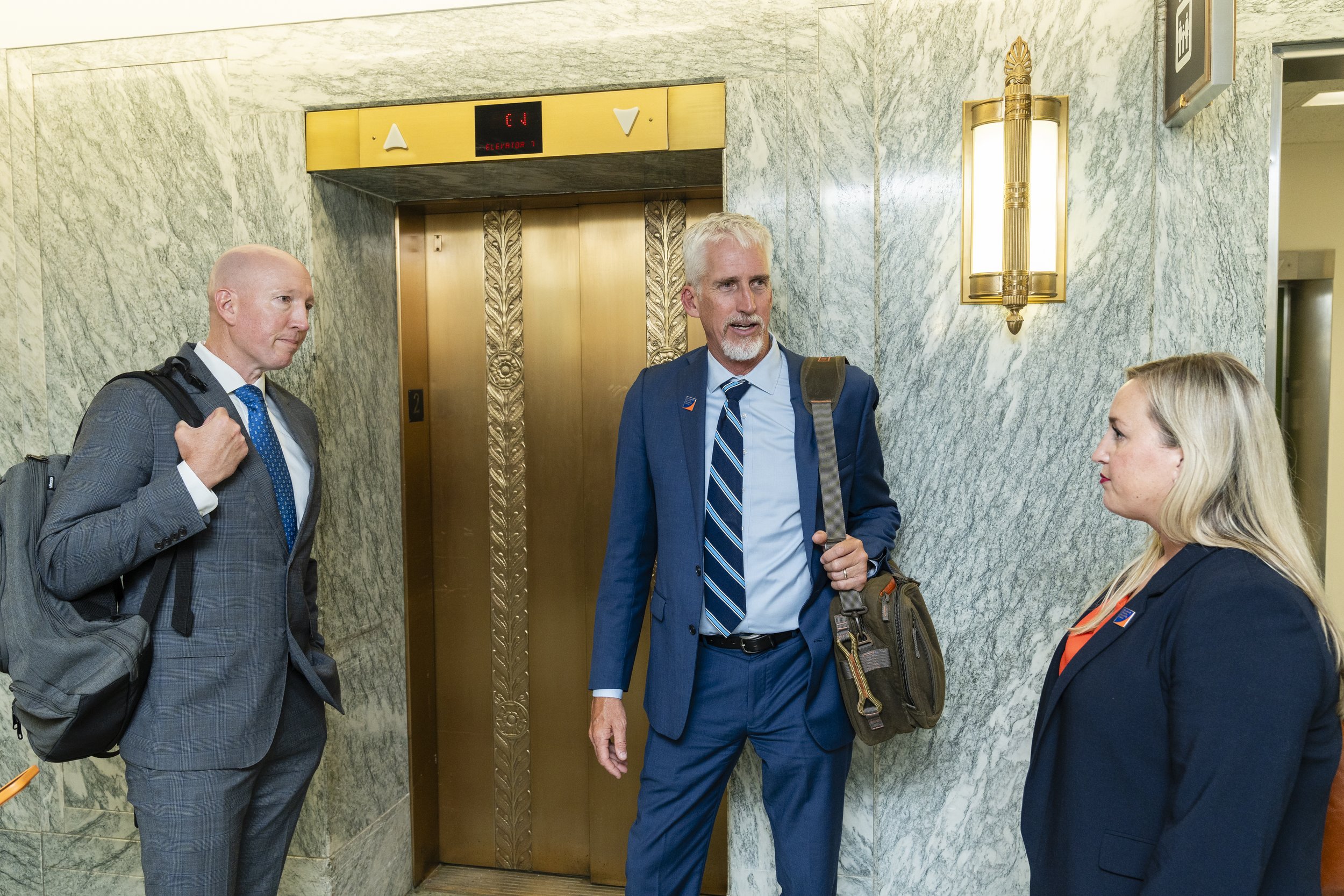
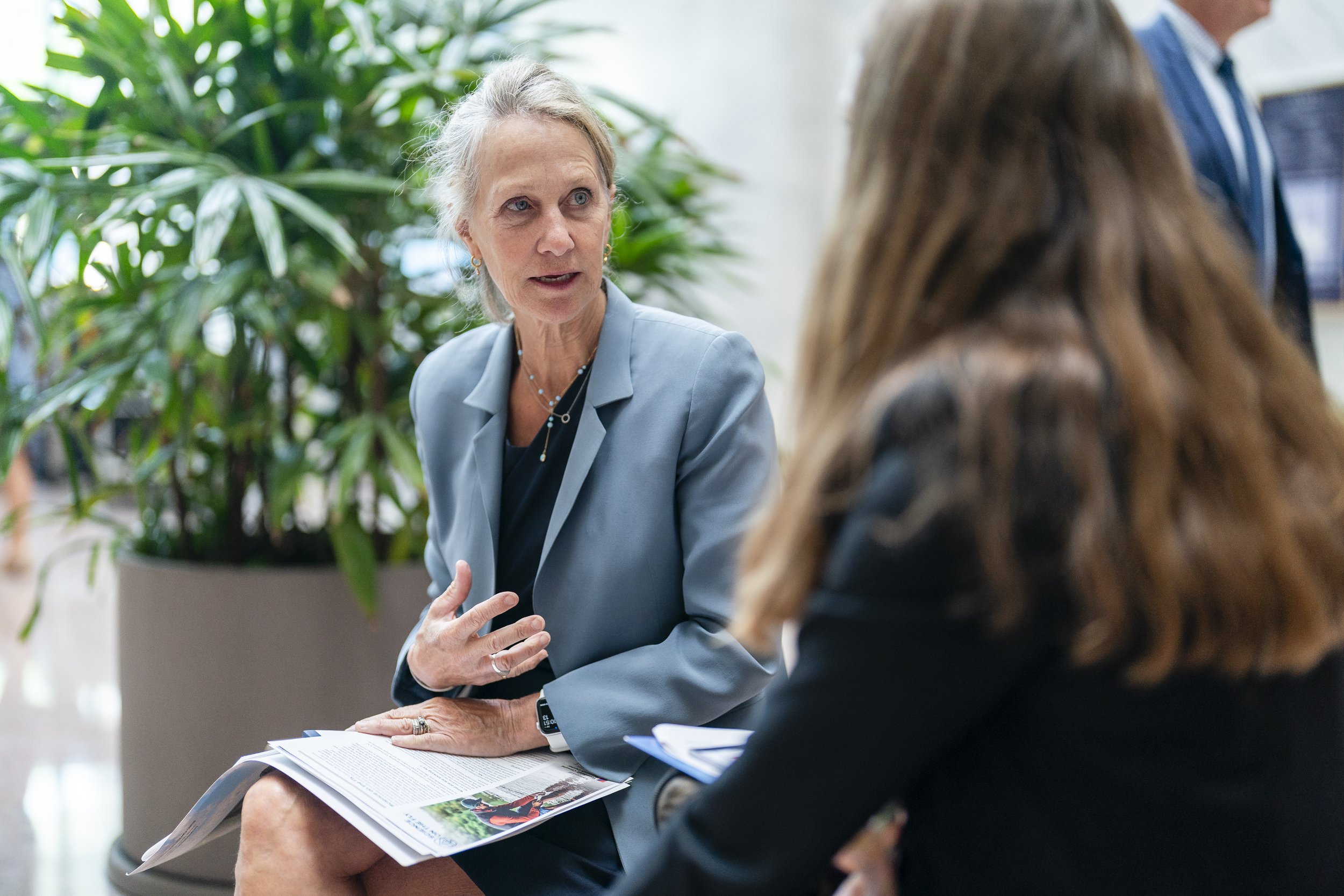
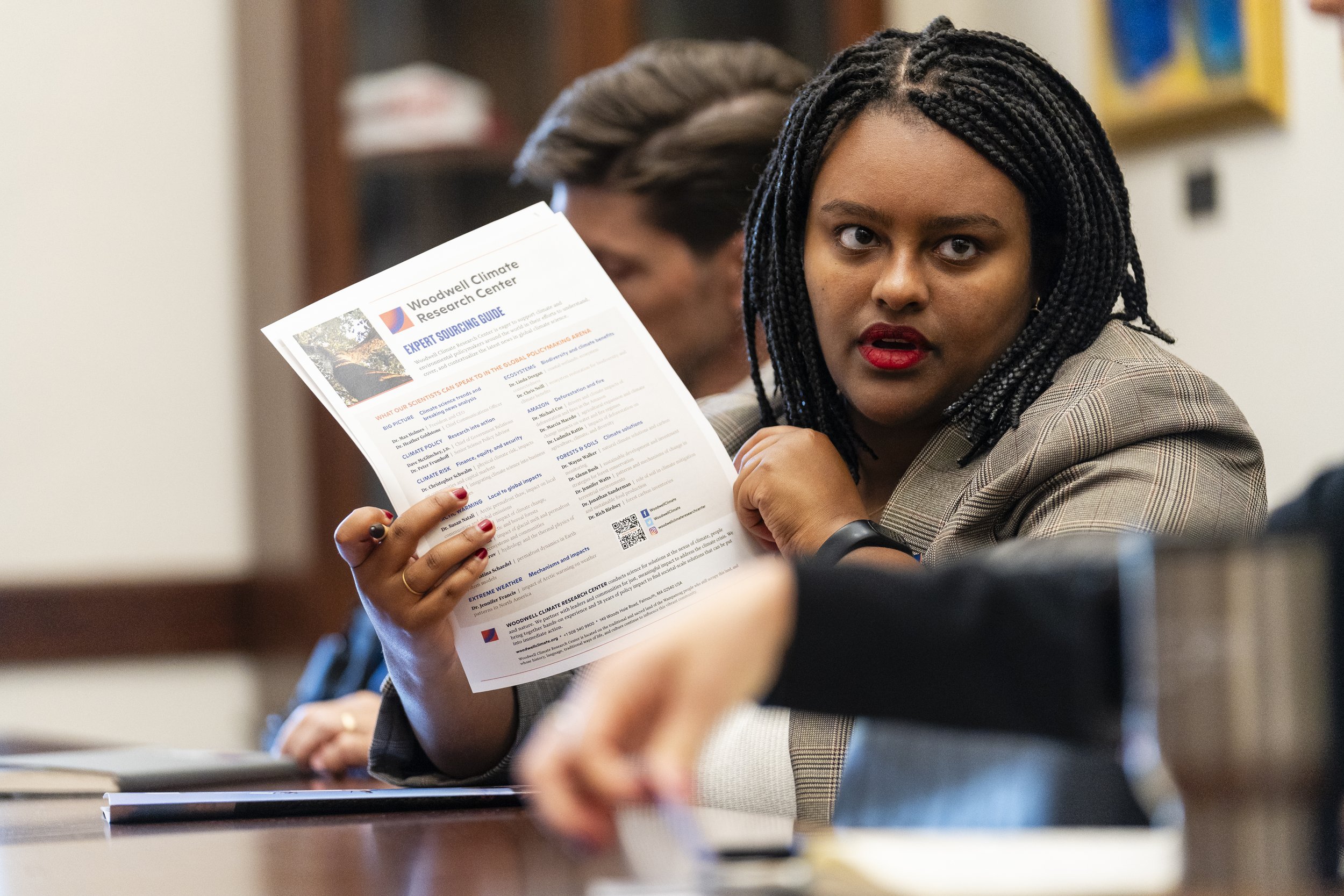
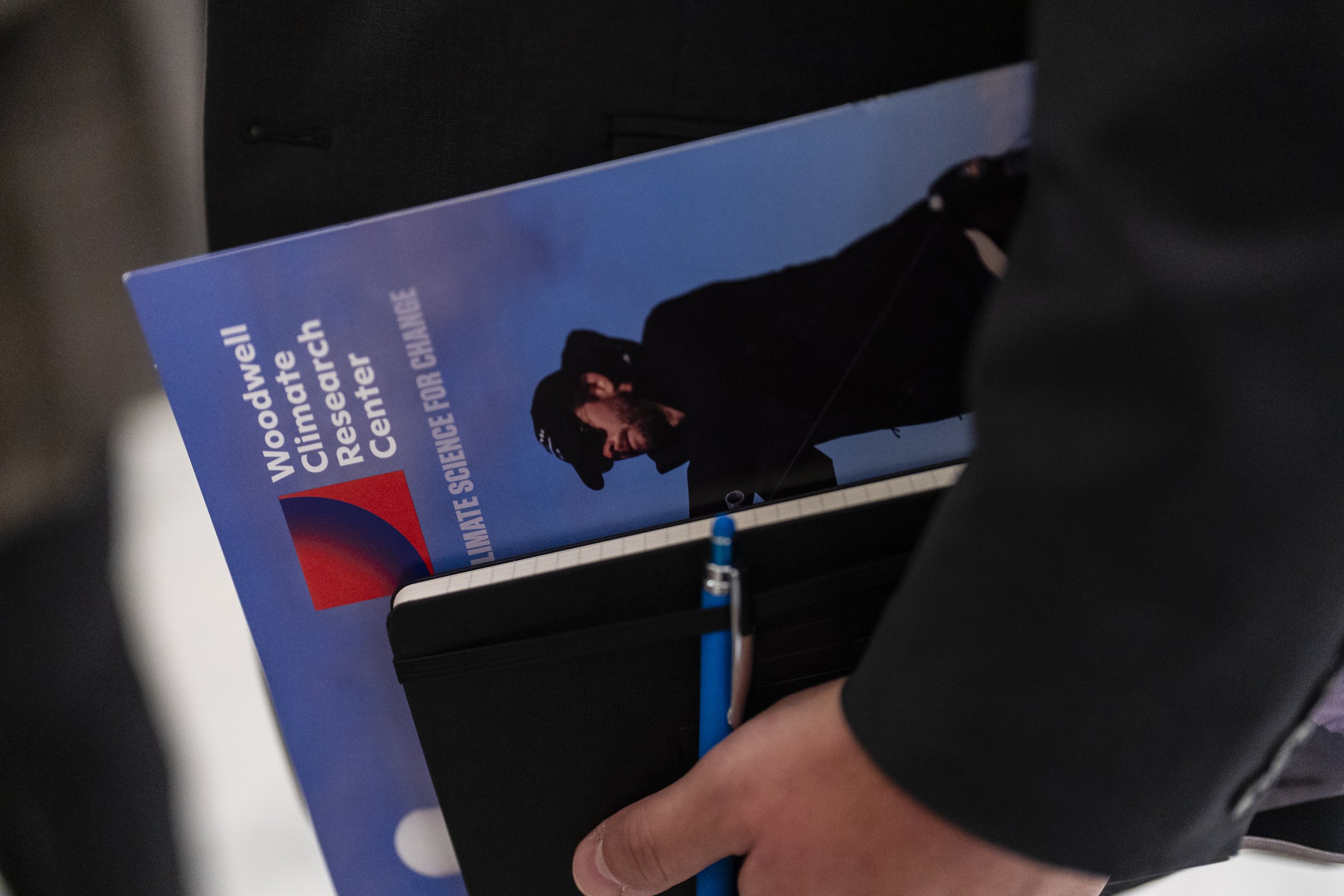
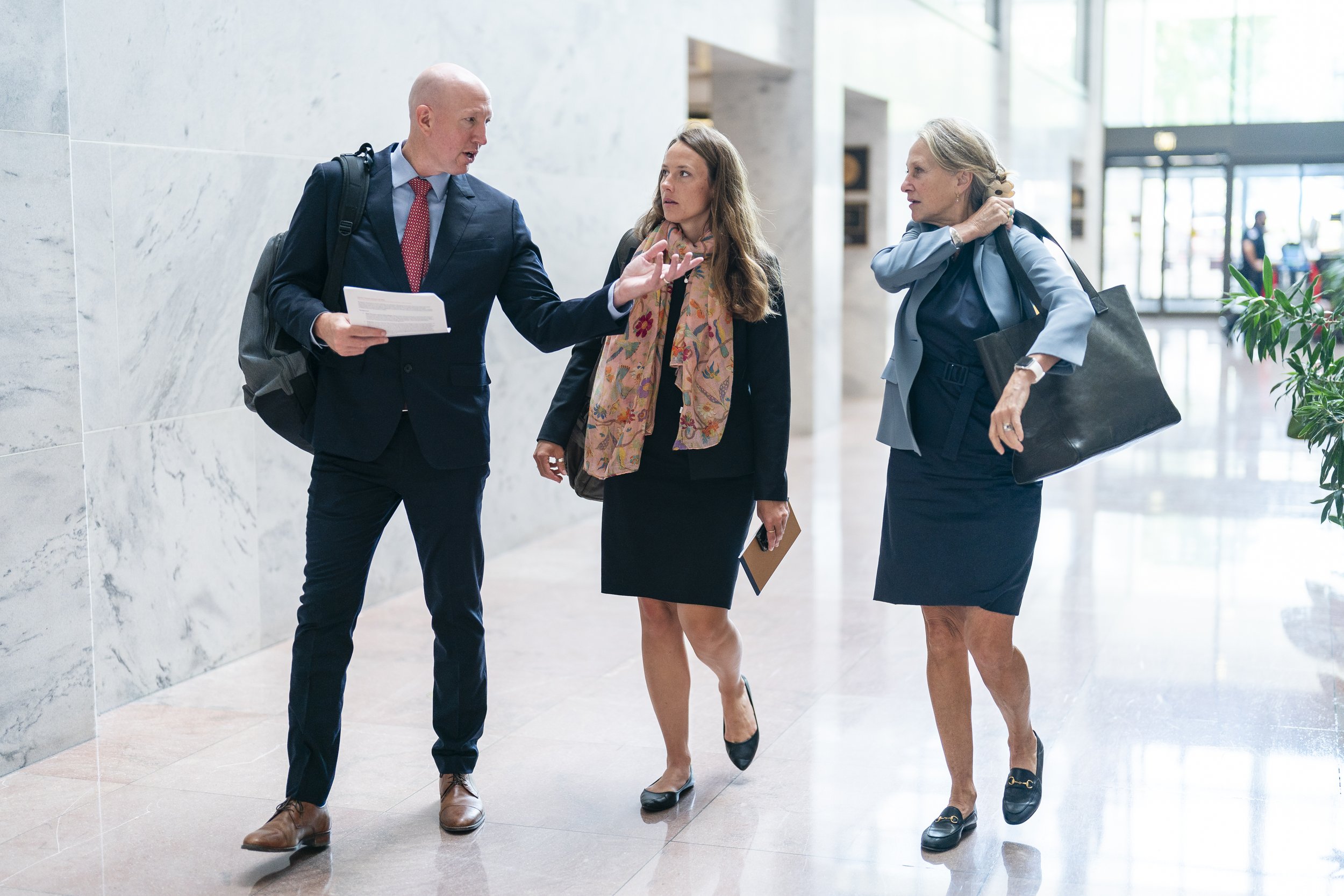
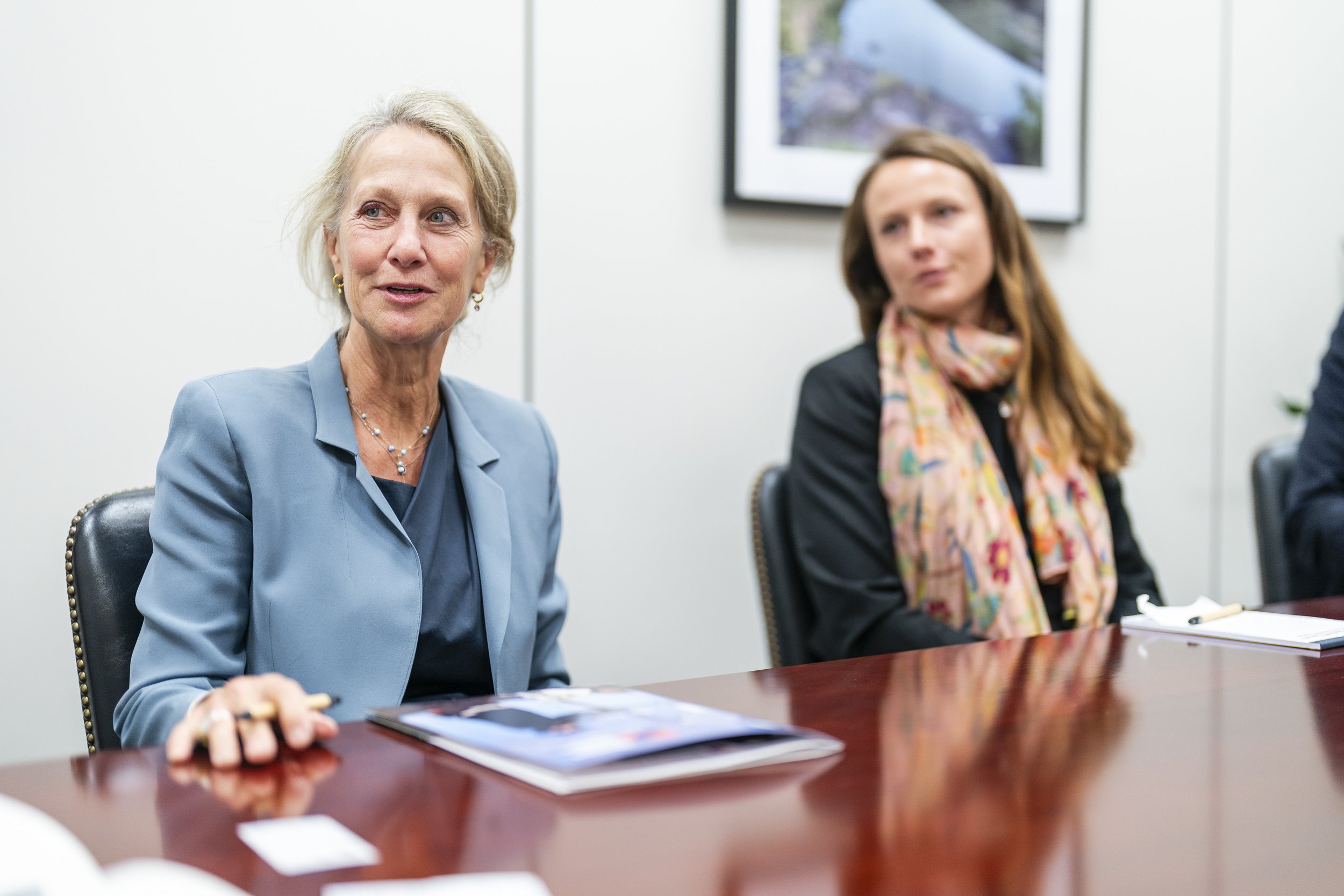
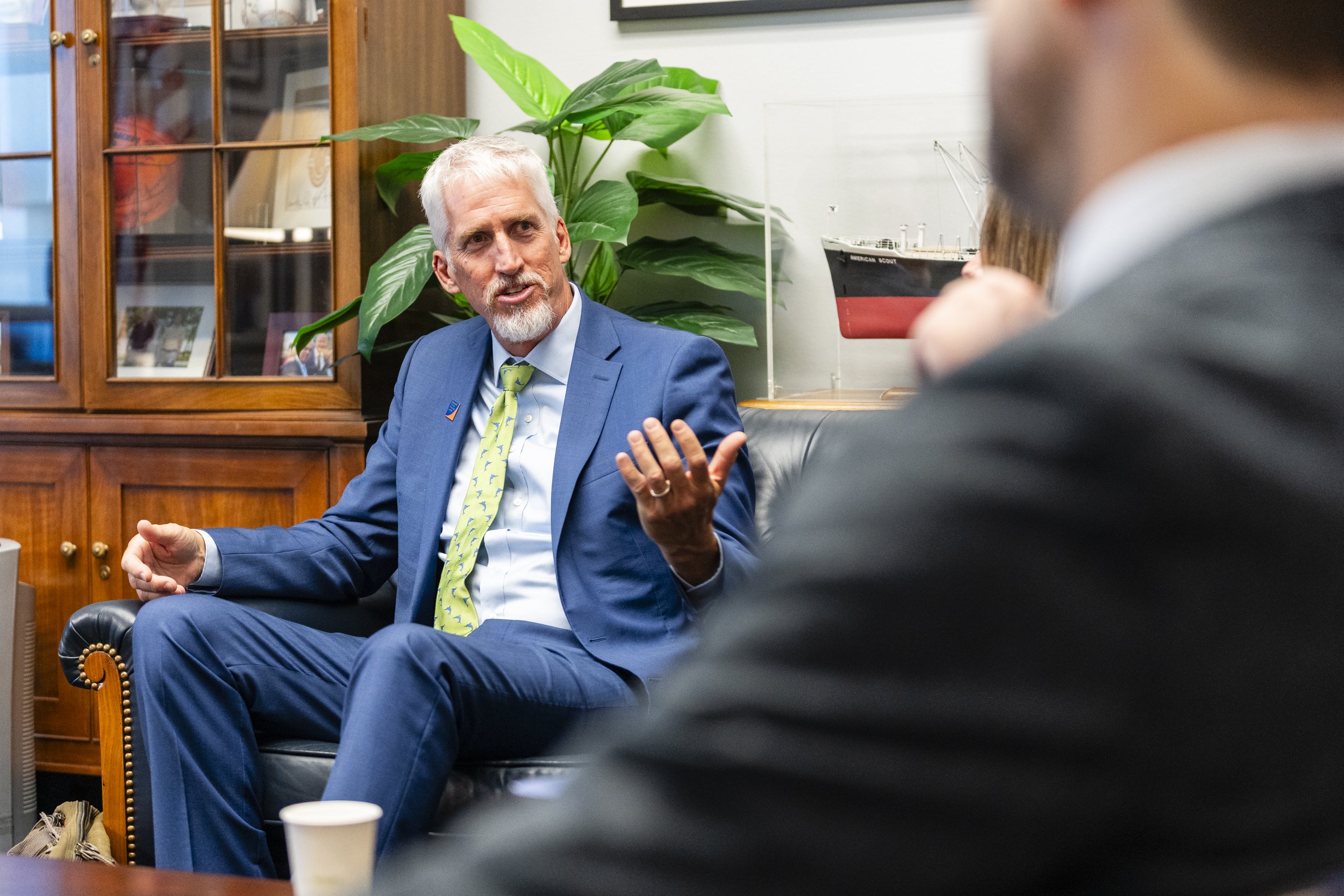
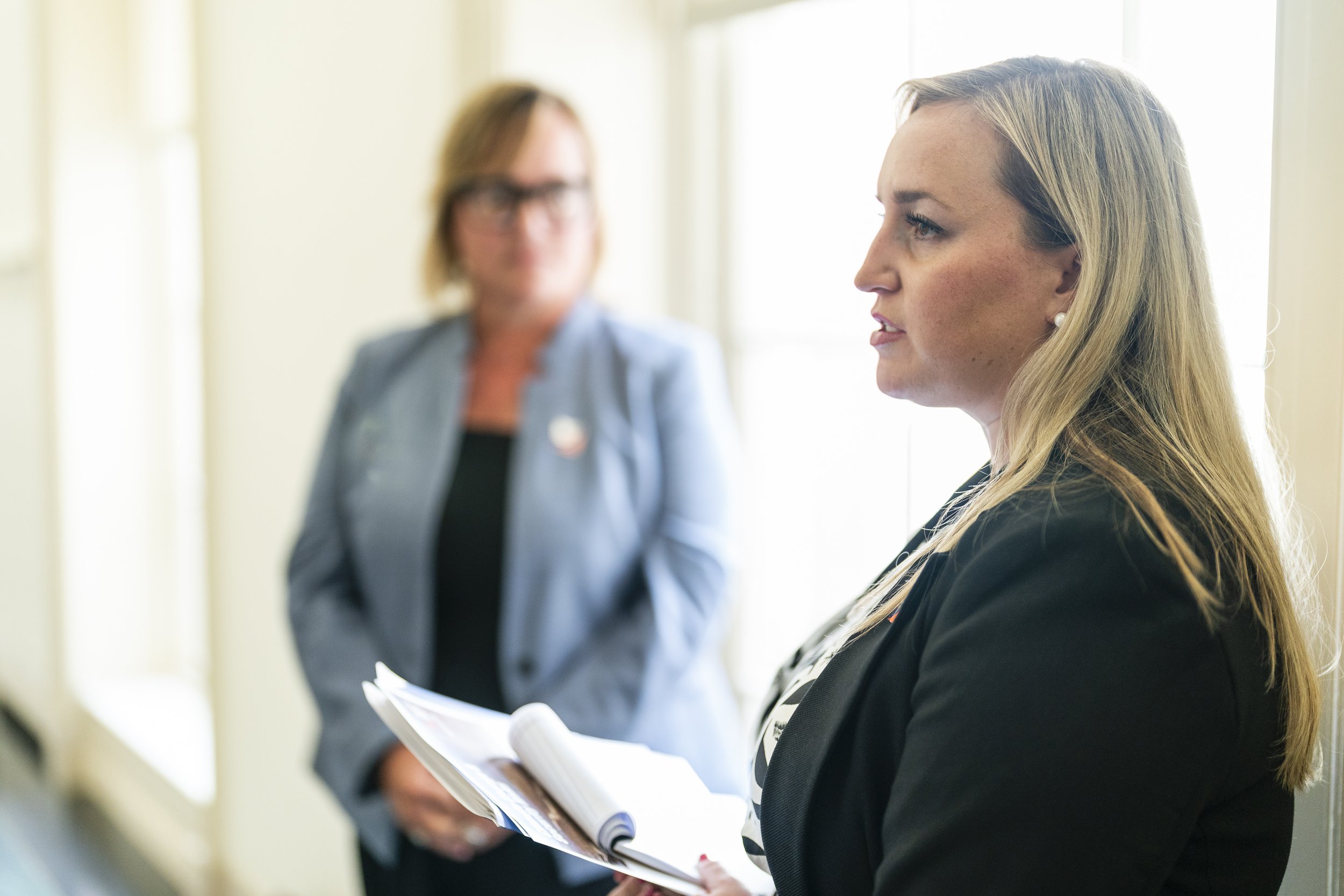
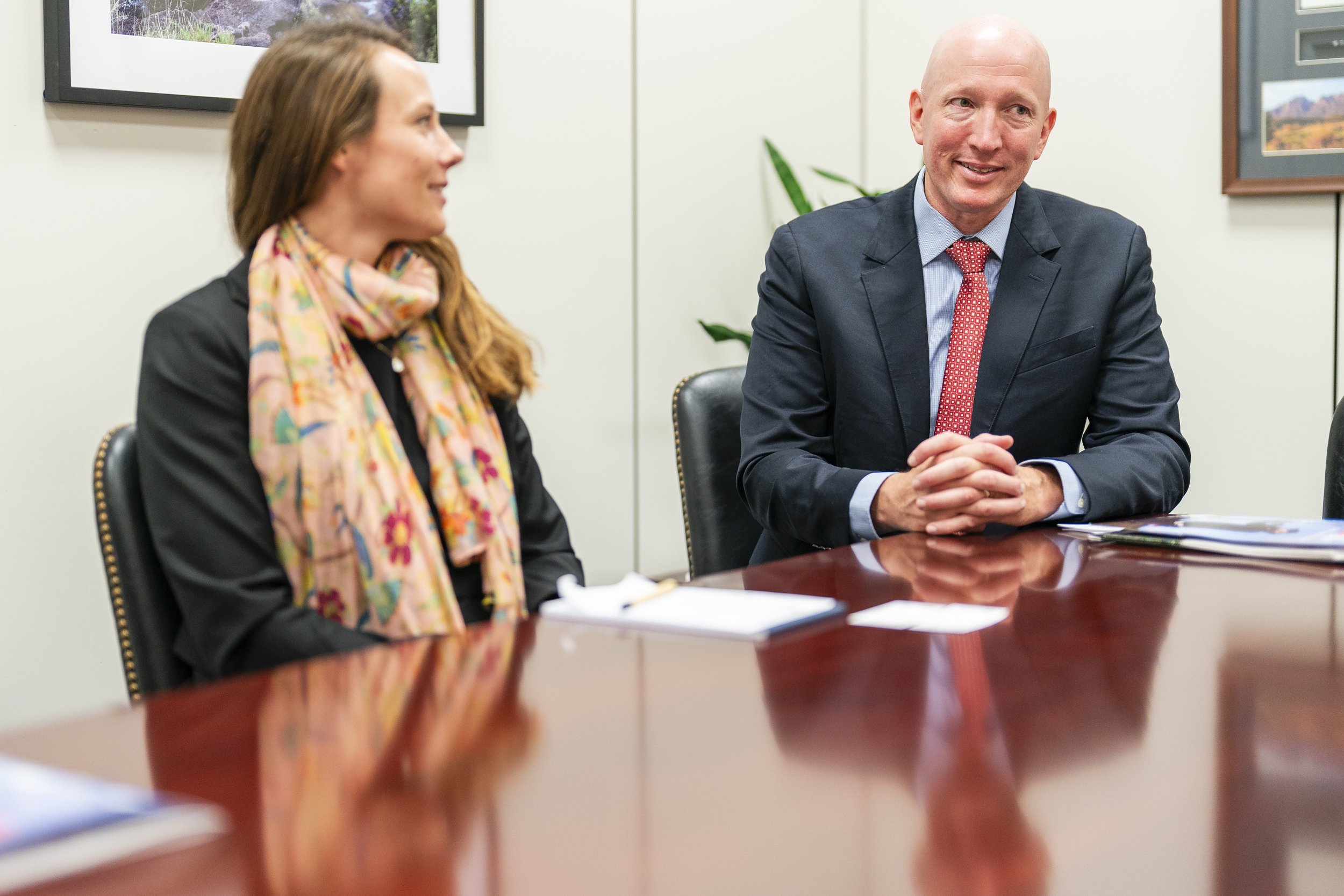
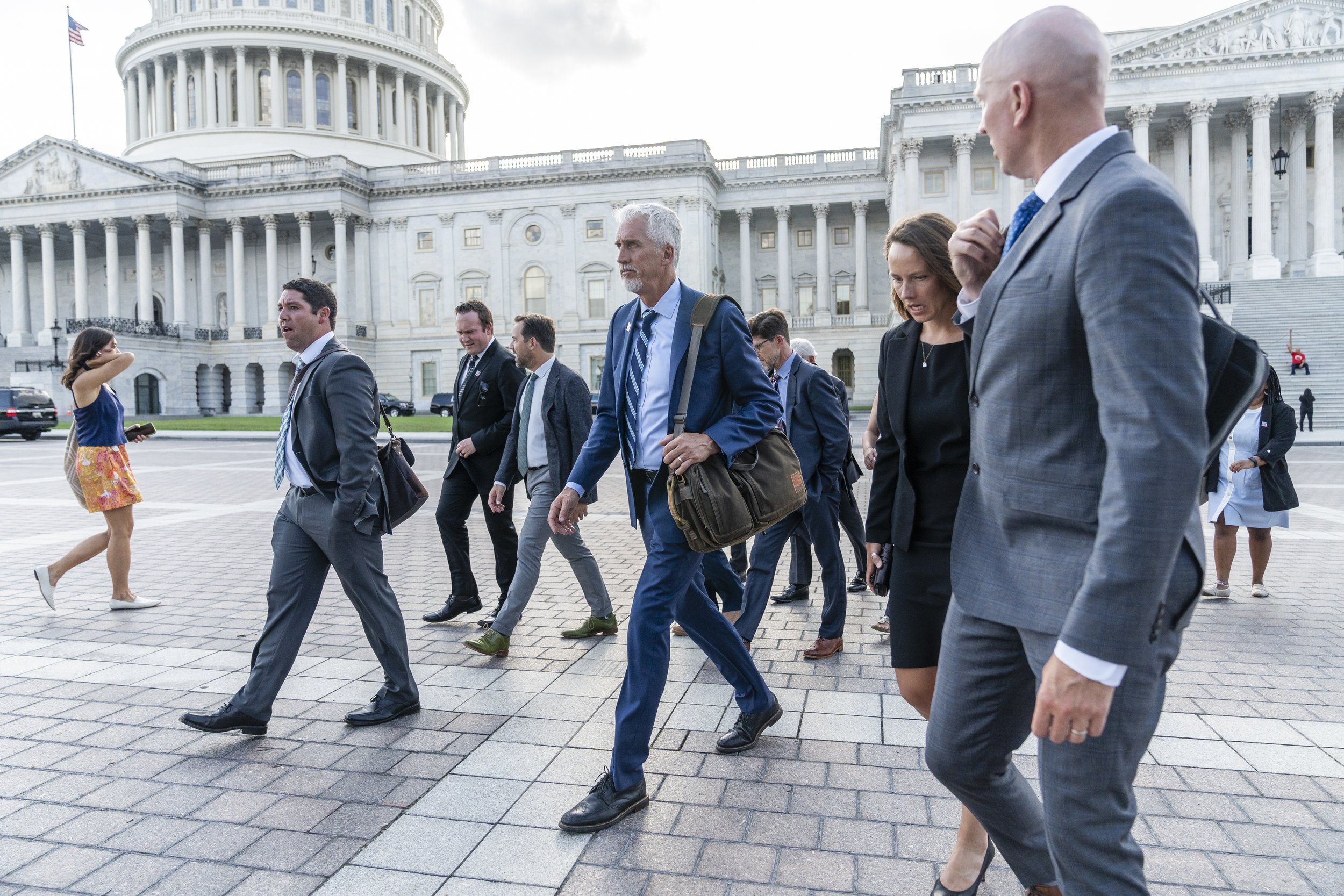
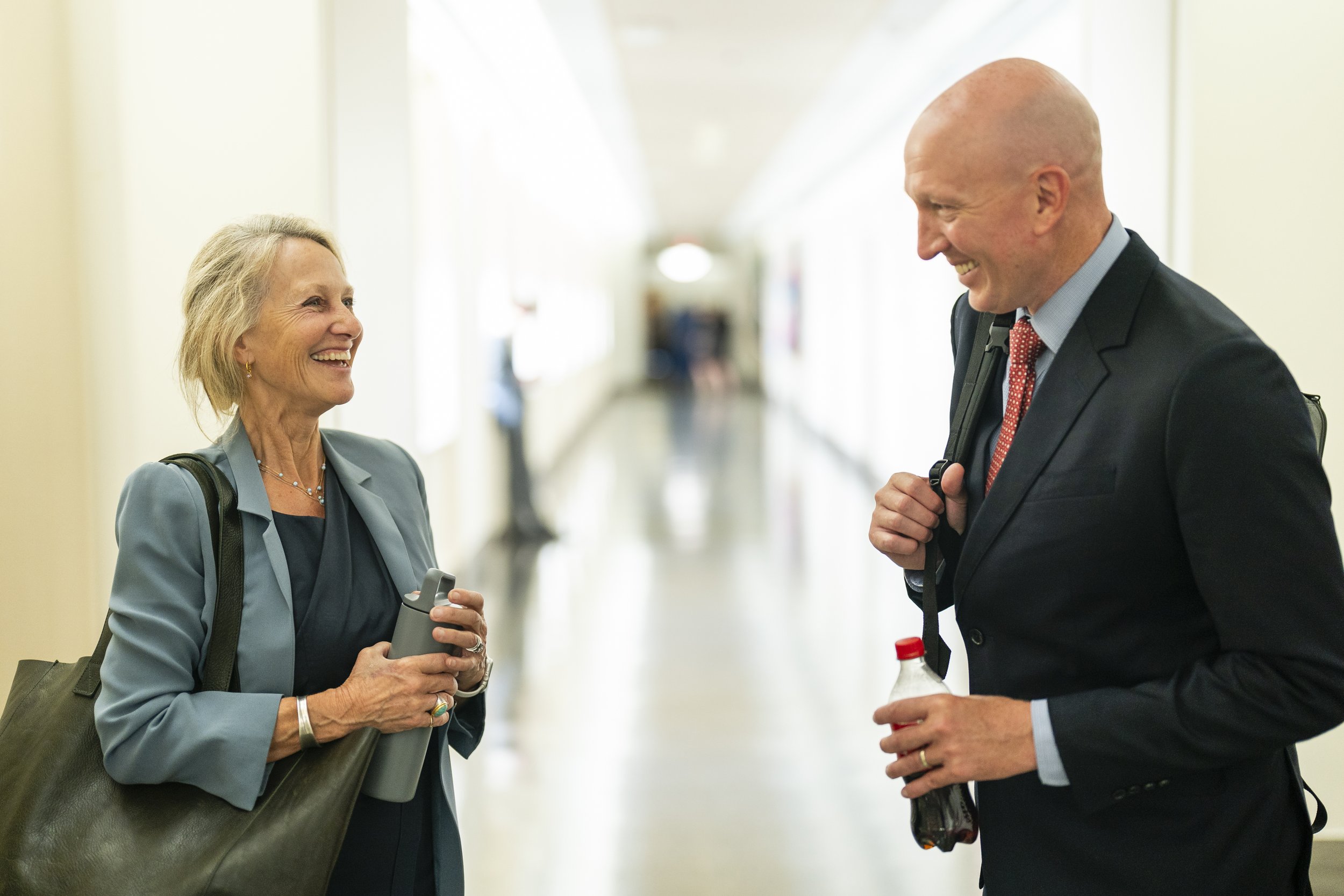
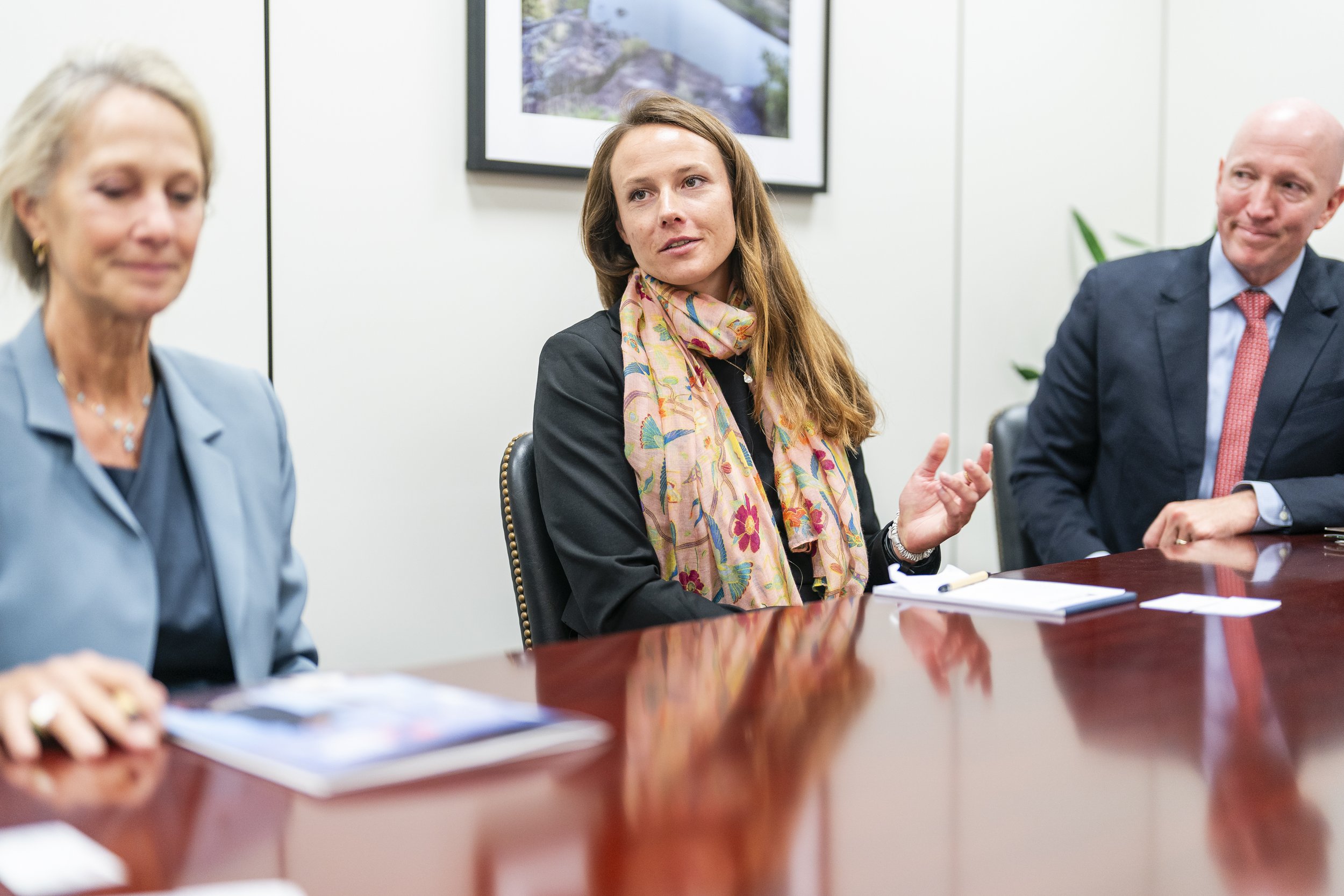
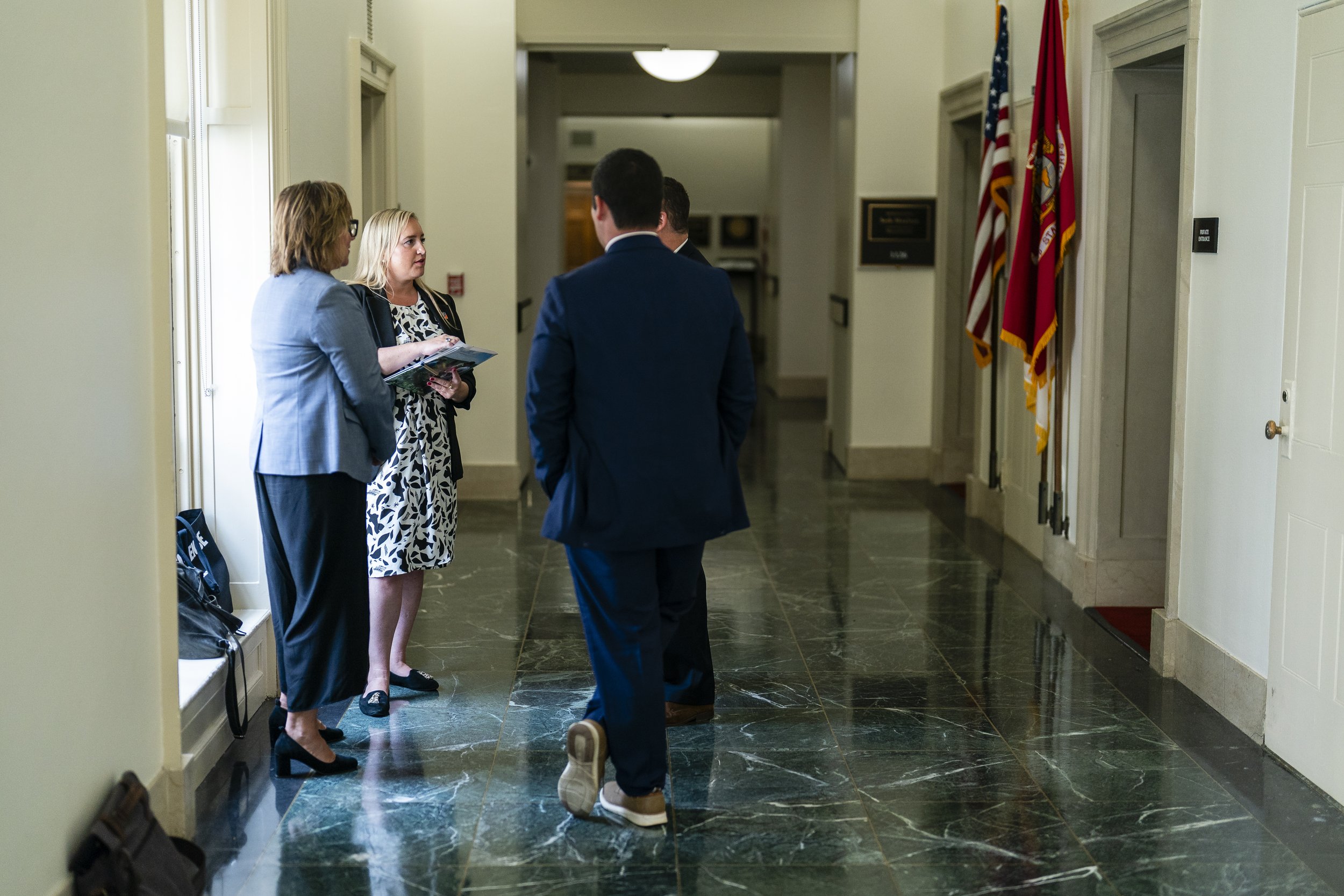
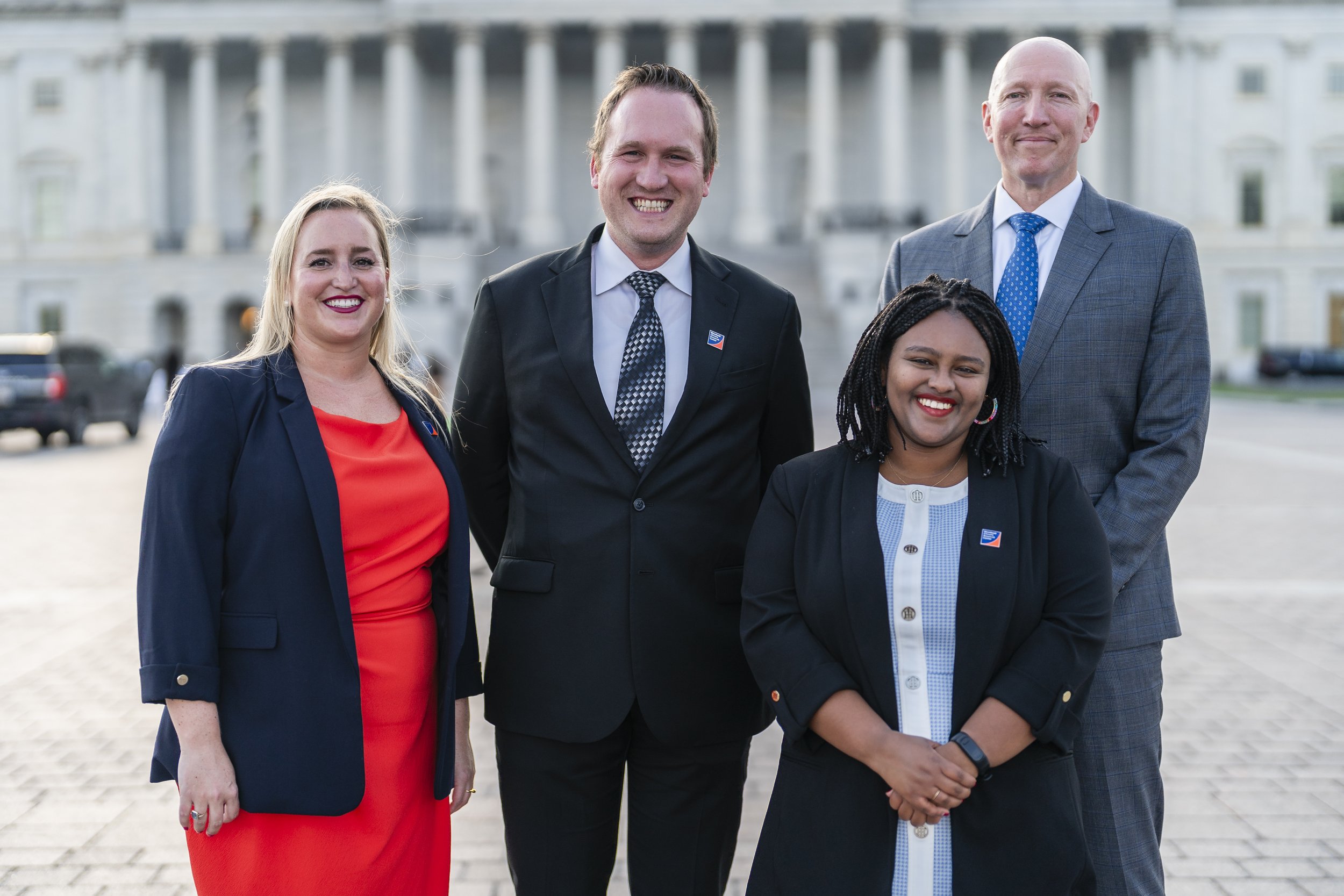
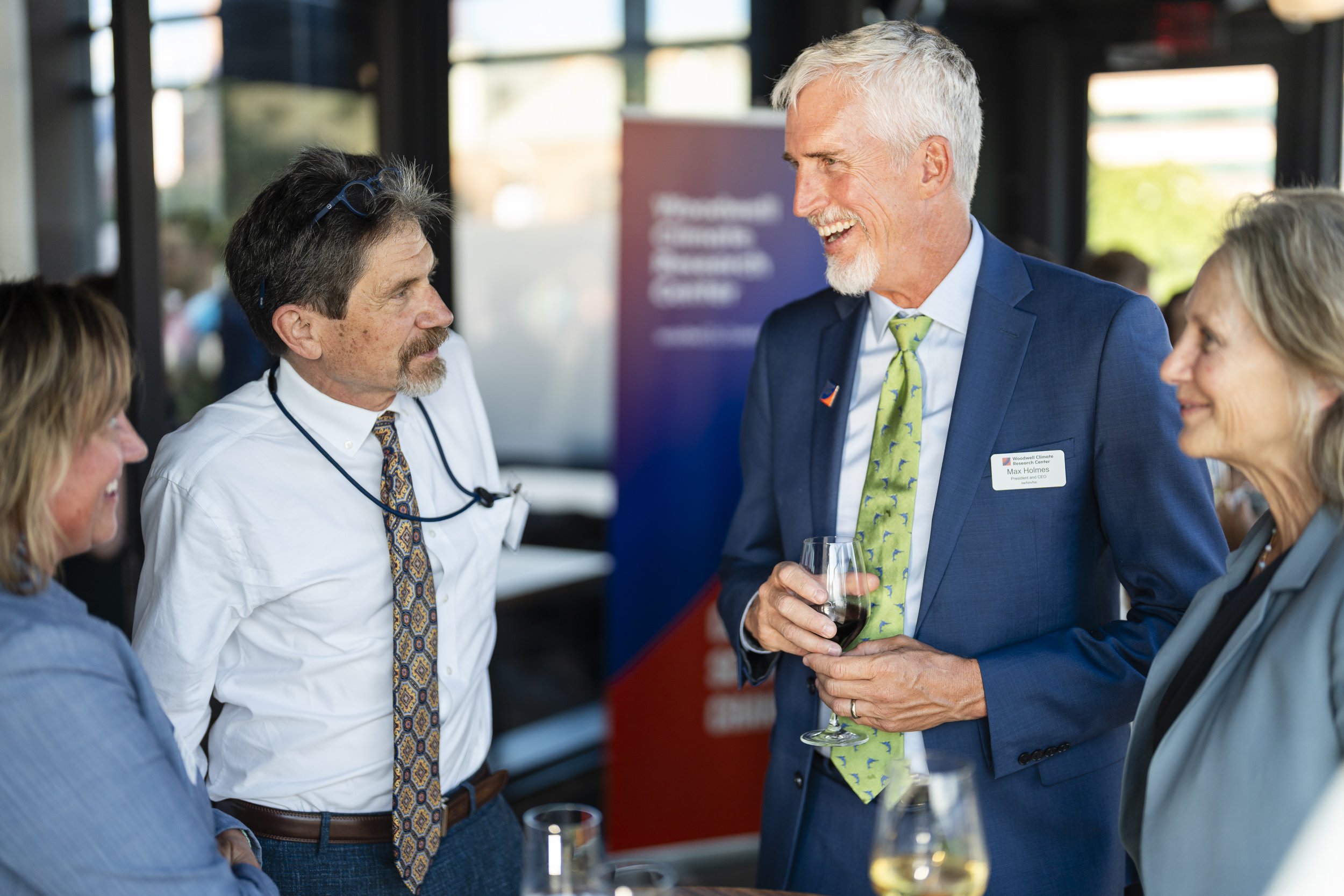
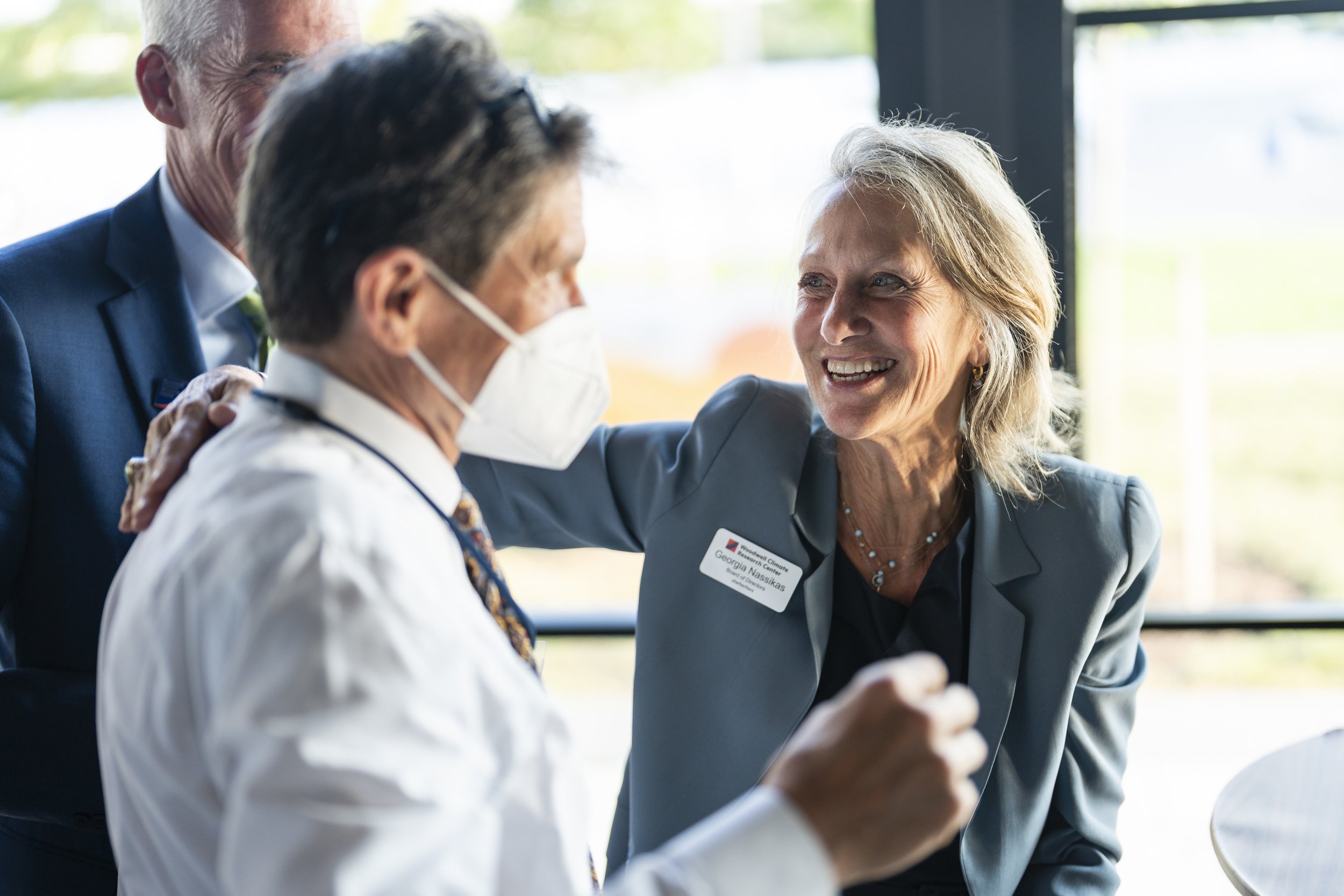

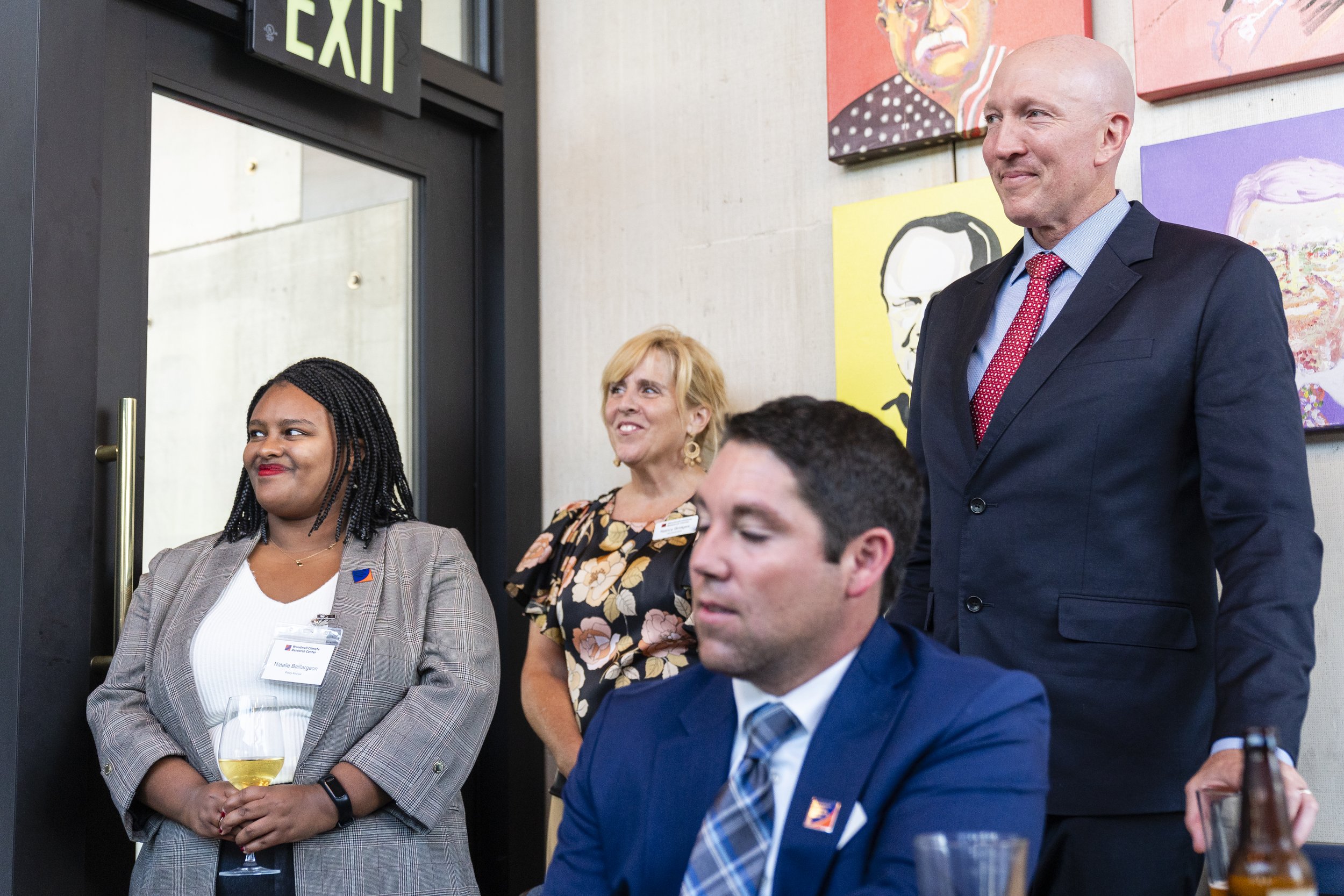
Photos of Science on the Fly team members during Woodwell Climate Research Center’s second Congressional Fly-In. Photos by Eric Lee.
Use Your Voice
Director of Science on the Fly, Allie Cunningham, never imagined she would find herself in Washington D.C. to lobby. Politics has never been her strong suit, but she always makes sure to cast a ballot for a local or national election. However, when Woodwell asked if the SOTF would be interested in heading to Capitol Hill to advocate for the Headwaters Protection Act, she didn't think twice. “When you are passionate about something, like healthy watersheds and fly fishing, it is so easy to stand up and advocate for it. Talking to congressional offices was a lot easier than I ever expected- it was actually not intimidating at all like I thought it would be. Instead, it was extremely fulfilling and made me want to do it more. I’m glad that our program and public data is now being used in policy discussions, where decision-making is being made. This fly-in made me understand the importance of combining it all together and I am excited to go back to D.C. and talk with more offices.”
We don’t get what we don’t ask for. We heard that from an office while we were lobbying. Let’s make sure we ask for healthier rivers and climate action. Let’s show them the passion of community scientists and the value of the water samples they are collecting. Let’s bring a voice for the rivers and speak up for them. Our data collect by our community scientists is beginning to do just that.
Call your representative and ask them to support the Headwaters Protection Act of 2023 S.1853. If you would like to see our policy briefing that we brought to the offices during the congressional fly-in, check it out here. Use it as a resource for when you advocate for your river.


